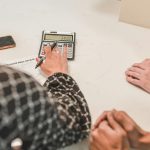The Essential Role of Mortgage Loan Fraud Audits in Safeguarding Financial Integrity
Introduction:
Mortgage loan fraud is an ever-present risk in the world of real estate and lending. Fraudulent activities in the mortgage industry have far-reaching consequences, not just for individual borrowers, but also for financial institutions, investors, and the broader economy. As the complexity of mortgage lending increases, so too do the methods used by fraudsters to deceive lenders and exploit loopholes in the system. This makes the role of mortgage loan fraud audits more critical than ever before.
Mortgage loan fraud audits are the most effective way to uncover discrepancies and irregularities in loan applications, documentation, and approval processes. These audits are designed to identify signs of fraud and ensure that all loans issued by financial institutions meet the highest standards of integrity. In recent years, the growing sophistication of mortgage fraud schemes has led to a rise in the demand for these audits, which serve as an invaluable tool for risk mitigation and fraud prevention.
In this blog, we will take an in-depth look at what mortgage loan fraud audits are, why they are so important, the types of fraud they help uncover, and how they work. By understanding the critical role these audits play, lenders, borrowers, and investors can better navigate the risks of mortgage fraud and maintain the integrity of the mortgage process. Whether you are a lender seeking to protect your business or a borrower looking to better understand the process, this guide will provide you with valuable insights into the world of mortgage loan fraud audits.
What Are Mortgage Loan Fraud Audits?
A mortgage loan fraud audit is a thorough examination of the loan application and related documents to identify any signs of fraudulent activity. The primary purpose of these audits is to ensure that the loan process, from origination to closing, adheres to legal and regulatory guidelines. Auditors review a variety of documents, including loan applications, tax returns, bank statements, pay stubs, credit reports, property appraisals, and more to detect inconsistencies, misrepresentations, or falsifications.
The goal of a mortgage loan fraud audit is not just to identify fraud but also to help prevent it. By identifying potential red flags and discrepancies early in the process, these audits can prevent fraud from occurring in the first place, saving lenders from significant financial losses and legal issues. They are often performed by specialized forensic auditors with expertise in mortgage lending practices and fraud detection.
Mortgage fraud audits are commonly conducted in several scenarios: during the loan origination process, in post-closing reviews, and even after a loan has gone into default or foreclosure. No matter the situation, the main objective is to ensure that every aspect of the mortgage loan is legitimate, transparent, and in compliance with all regulatory standards.
Common Types of Mortgage Loan Fraud
Mortgage fraud comes in various forms, and identifying each type is essential for auditors. Here are some of the most common types of mortgage loan fraud detected during audits:
- Income Misrepresentation:This is one of the most common types of mortgage fraud. Borrowers may inflate their income by falsifying pay stubs, tax returns, or employment verification letters. This makes them appear more creditworthy than they actually are and increases their chances of getting approved for a loan they cannot afford.
- Appraisal Fraud:In appraisal fraud, the value of a property is intentionally inflated to match the loan amount. This type of fraud is often committed by appraisers, borrowers, or even real estate agents who may benefit from the overvaluation. By inflating the appraisal value, fraudsters can secure a higher loan amount than the property is worth, increasing the risk of loan default and foreclosure.
- Occupancy Fraud:Some borrowers may claim that a property will be their primary residence to qualify for a better loan rate or terms, even though they intend to rent out or sell the property. This misrepresentation can lead to higher risks for the lender, as loans for primary residences are often seen as less risky than those for investment properties.
- Straw Buyer Fraud:In this scenario, an individual with a clean financial record (the “straw buyer”) applies for a mortgage on behalf of someone else who would not qualify for a loan due to poor credit or financial instability. The fraudster may use the straw buyer to obtain the mortgage, only to default on the loan later.
- Identity Theft:Identity theft is a growing concern in the mortgage industry. Criminals use stolen personal information to apply for loans in someone else’s name, often with no intention of repaying the loan. The victim of identity theft may not even be aware that their information has been used until it is too late.
- Falsified Documents:Fraudulent documents are commonly used to support false claims during the mortgage process. These could include forged tax returns, fabricated bank statements, and altered pay stubs. Falsified documents mislead the lender into believing the borrower is more financially stable than they actually are.
How Do Mortgage Loan Fraud Audits Work?
Mortgage loan fraud audits involve a detailed examination of all loan-related documentation and a thorough investigation to identify fraudulent activity. These audits are typically conducted by forensic accountants, fraud specialists, or mortgage compliance officers who possess a deep understanding of mortgage lending practices.
Here’s a breakdown of the audit process:
- Document Collection and Review:The audit begins with gathering all relevant documents related to the loan, including the loan application, credit reports, bank statements, tax returns, and property appraisals. The auditor will compare these documents to identify any inconsistencies or discrepancies.
- Verification of Borrower Information:The auditor will verify the accuracy of the information provided by the borrower, including employment status, income, assets, and liabilities. Verification might include contacting employers, reviewing tax records, and confirming bank balances.
- Inspection of Property Documents:The auditor will also scrutinize property-related documents, including the appraisal report, title report, and insurance records. The goal is to ensure that the property’s value is accurate, and that no fraudulent information has been used to inflate its worth.
- Identification of Red Flags:Auditors look for specific red flags that may indicate fraud, such as inconsistencies between documents, unexplained gaps in employment or income history, unusually high appraisal values, and signs of misrepresentation. They also check for potential patterns of fraudulent behavior that may be indicative of more significant fraud schemes.
- Generating a Fraud Audit Report:After the audit is complete, a detailed fraud audit report is generated. This report outlines the auditor’s findings, including any red flags or discrepancies that indicate potential fraud. It also includes a recommendation for the next steps, which may include denying the loan, reporting the fraud to authorities, or implementing corrective measures.
- Ongoing Fraud Prevention Recommendations:In addition to identifying specific cases of fraud, mortgage fraud audits often come with recommendations for improving fraud prevention measures. This may involve adopting stricter verification processes, using advanced fraud detection software, or revising loan approval procedures to reduce the likelihood of fraud occurring in the future.
Why Mortgage Loan Fraud Audits Are Critical
Mortgage loan fraud audits are essential for protecting lenders, borrowers, and the overall integrity of the financial system. Here are some reasons why these audits are so crucial:
- Mitigating Financial Risks:The most obvious benefit of mortgage loan fraud audits is the reduction in financial risk. Fraudulent loans can lead to significant losses for lenders, especially if the borrower defaults. Detecting fraud early helps prevent these losses.
- Maintaining Regulatory Compliance:Financial institutions must adhere to strict regulations regarding mortgage lending. A mortgage fraud audit ensures that lenders comply with these regulations and helps avoid potential fines, penalties, and legal issues.
- Protecting Lender Reputation:Fraud can damage the reputation of financial institutions, causing them to lose clients and investors. Mortgage fraud audits help prevent such situations by ensuring the legitimacy of the loan portfolio.
- Supporting Loan Quality:Fraud audits contribute to the overall quality of a lender’s loan portfolio. By eliminating fraudulent loans, auditors help ensure that only legitimate, high-quality loans are approved, which reduces the risk of defaults and foreclosure.
- Improving Operational Processes:Fraud audits provide valuable insights into vulnerabilities within a lender’s operational processes. Based on audit findings, lenders can enhance their fraud prevention measures and improve the overall loan origination process.
Conclusion:
Mortgage loan fraud is a serious issue that can have devastating consequences for both lenders and borrowers. However, mortgage loan fraud audits offer a powerful solution for detecting and preventing fraudulent activity, ensuring that all mortgage loans meet the highest standards of integrity. These audits not only protect lenders from financial losses but also help maintain the reputation of financial institutions and ensure regulatory compliance.
By identifying fraudulent practices early in the process, mortgage loan fraud audits contribute to a more secure and transparent mortgage lending system. For financial institutions, these audits are an invaluable tool for risk management and operational improvement. For borrowers, they ensure that only legitimate loans are approved, reducing the likelihood of being taken advantage of by fraudulent actors.
Mortgage loan fraud audits are not just about identifying fraud; they are about fostering trust and maintaining the integrity of the mortgage system. By investing in comprehensive fraud detection and prevention measures, lenders can safeguard their business, protect their clients, and contribute to the overall stability of the financial system.
Contact us today at (877)-399-2995 or visit Mortgage Audits Online to learn more. Secure your financial future with confidence!




